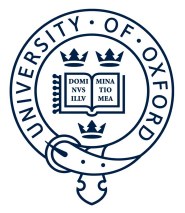
mriedel@div.duke.edu

Research
Current projects
Postdoctoral research
This project, led by Professor Sir Fergus Millar as Principal Investigator, concerns social, cultural and religious relations in the Near East under Roman rule in the three centuries between the conversion of Constantine to Christianity in 312 CE and the Islamic conquests of the early seventh century. Syriac literature has been the field of study of a succession of major scholars, but it has not been the subject of any serious historical treatment. The conditions for this development were unique, because the other two non-classical Christian languages of culture under the Empire, Egyptian and Hebrew/Jewish Aramaic, had been in continuous use in some form since before the Hellenistic period. This project asks, what pattern does the use of Syriac in literature and documents take, and how does this pattern evolve over time? Also, in what regions of the Near East was Syriac in use? What historical information is contained in Syriac texts, whether contemporary or later chronicles? Finally, what is the relation between the social and geographical background and the eventual emergence of separate Syriac-speaking Churches?
As Syriac Research Officer for this project, I had the task of exploring narrative material in Syriac, both contemporary and as represented by numerous later chronicles, e.g. by Michael the Syrian, and both published and unpublished. It should be stressed that Syriac is a seriously underdeveloped field, with many important texts either not published at all or without modern translation or commentary. The purpose of my research therefore was to explore both the history of Syriac-speaking communities and the evolution of the role of Syriac as a language of culture in a bilingual environment in which Greek was the established public language.
Doctoral research
My doctoral dissertation investigated the social, intellectual, and diplomatic interaction of Byzantium and Islam, with special reference to their religious differences, and how these influenced Byzantine identity and subsequent political thought and action. The centrepiece of the thesis is a new analysis of the design and purpose of Leo VI’s military manual, the Taktika, and particularly his use of biblical allusions and language to articulate a Byzantine collective identity in contradistinction to the religious claims of perennial Muslim opponents. Other primary source material for this investigation comes from Arabic Christian apologetic, Byzantine chronicles, later imperial military manuals, monastic polemic, church martyrologies, military orations, and ceremonial. The diversity of texts reflects the multiple languages, cultural contexts, theological positions, literary purposes, and contemporary contributions of each author, while drawing out their common focus on the merits of Orthodox Christianity versus Islam.